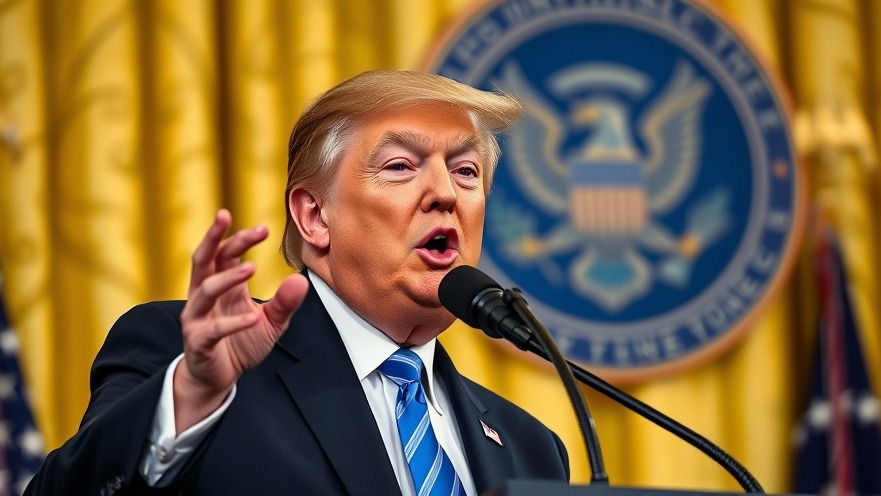
Trump's Deciding Moment: Tensions Rise in the Middle East
Amid rising tensions with Iran, President Donald Trump finds himself at a critical crossroads as the White House indicates a decision on potential military action could come within the next two weeks. This urgent situation arises from escalating provocations in the region, raising significant concerns among national and international audiences.
Understanding the Stakes
The decision to strike Iran is not merely a military strategy; it reflects broader geopolitical dynamics and national security implications for the United States and its allies. Experts warn that any military action could trigger extensive retaliation by Iran, potentially destabilizing the entire Middle East. As the world watches, the administration must weigh the ramifications of their response.
Implications for Domestic Politics: A Conversation With Rep. Greg Casar
In a recent episode of "The Takeout", Rep. Greg Casar engaged in a critical dialogue about the complexities surrounding the detainment of Democratic lawmakers, highlighting significant political undercurrents affecting legislative processes. As discussions on a possible strike against Iran unfold, Casar emphasizes the need for Congress's involvement in decisions of war, urging transparency and accountability from the executive branch. This reflects a growing sentiment among lawmakers for a more collaborative approach to national security matters.
Public Response: A Divided Nation
Public opinion on military action against Iran is varied, with some constituents advocating for strong action against threats, while others fear the potential loss of life and resources. Social media has become a battleground for these opposing views, illustrating a nation deeply divided on foreign intervention. As opinions shift and evolve, it's crucial for leaders to engage with their constituents, understanding the broader consequences of military actions.
Forecasting Outcomes: What Lies Ahead?
Analysts predict that the administration's decision-making will be influenced by both domestic and international pressures. With mid-term elections approaching, Trump's decision could shape the political landscape and influence voter sentiment. The ramifications of action or inaction will ripple through political, social, and economic spheres, setting the stage for long-lasting effects on American foreign policy.
The Role of the Media in Navigating Complexity
This situation underscores the critical role of media in informing the public, providing balanced coverage, and holding political entities accountable. As reporters dissect the layers of these developing stories, it is imperative that narratives focus on truth, clarity, and actionable insights. The integrity of journalism remains essential as the United States grapples with significant decisions regarding its global standing.
Seeking Clarity in a Sea of Information
For audiences seeking to navigate the intricate web of international relations, understanding the stakes involved in potential military action against Iran becomes paramount. Engaging with trusted news sources helps ensure one stays informed on breaking news and the motivations behind governmental decisions. The story is not just about imminent strikes but involves broader themes of diplomacy, accountability, and legislative integrity.
As we witness this pivotal moment in U.S. history, staying engaged with credible news outlets will empower individuals to better understand and shape the context of foreign policy moving forward.
 Add Element
Add Element  Add Row
Add Row 



Write A Comment